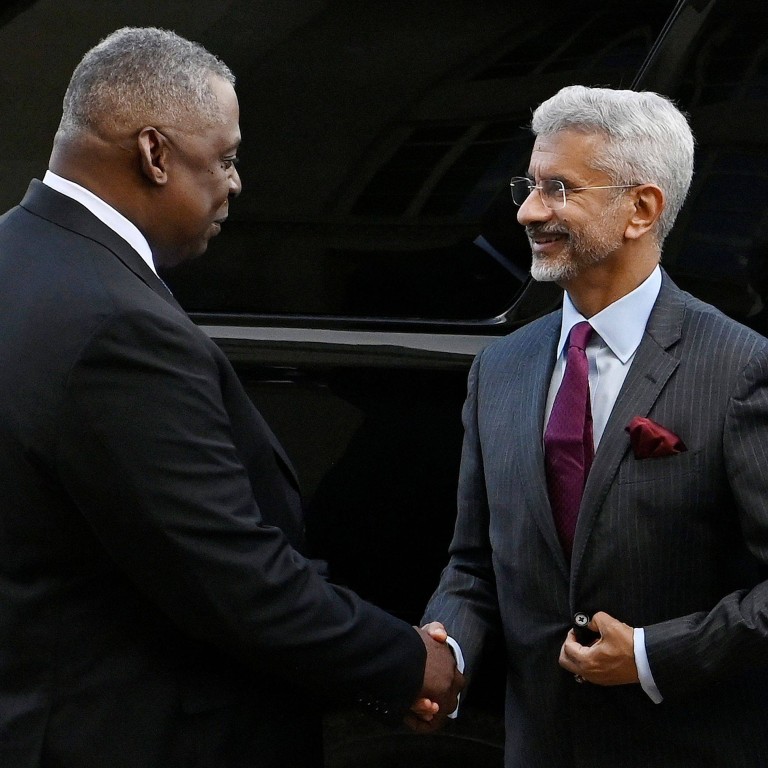
US vows deeper India defence ties on same day latter vents anger over F-16 deal with Pakistan
- Pentagon chief meets Indian foreign minister in Washington, committing to support New Delhi as ‘security provider’ in Indo-Pacific region
- But envoy earlier says ‘you are not fooling anybody’ by claiming US$450 million deal with Islamabad will bolster counterterrorism
“For someone to say, ‘I am doing this because it is all counterterrorism content’, and so, when you are talking of an aircraft like a capability of an F-16 where everybody knows … where they are deployed and their use, you are not fooling anybody by saying these things,” Jaishankar said at a book launch in Washington.
The US has argued that maintaining Pakistan’s F-16 fleet will bolster Islamabad’s capability to meet current and future counterterrorism threats.
Later on Monday, Austin met with Jaishankar at the Pentagon, and the two “discussed new opportunities for bilateral defence industrial cooperation in support of India’s contributions as a regional security provider”, according to a press release.
The US “looks forward to working with India and like-minded partners to promote security, prosperity, and transparency” in the Indo-Pacific, it added.
And while the US was once Pakistan’s largest supplier of arms, that distinction now belongs to China. Between 2017 and 2021, Beijing met 72 per cent of Islamabad’s demand for major arms, according to data published by the Stockholm International Peace Research Institute in March.
In light of India’s displeasure with the recent F-16 deal, questions loom as to whether the Quad’s effectiveness could be undermined.
But the Biden administration’s engagement with both India and Pakistan as it manages the inevitable challenges makes sense in the larger scheme, according to Elizabeth Threlkeld, director of the Stimson Centre’s South Asia programme.
“The US and India don’t see eye to eye on policy towards Pakistan, but Washington believes the differences are manageable,” Threlkeld said.
Indian foreign minister says goal is to bring China relations ‘back to normal’
“Partnering with India in the Indo-Pacific is a key US priority, and the increasing cooperation between Washington and New Delhi helps to insulate the relationship from occasional friction over Pakistan.”
US Secretary of State Antony Blinken’s schedule on Monday reflected Washington’s dual interests: America’s top diplomat hosted a working dinner with Jaishankar on Monday, hours after holding a meeting with Pakistani Foreign Minister Bilawal Bhutto Zardari.
US State Department spokesman Ned Price on Monday described India and Pakistan as “partners with different points of emphasis”.
“We do have, in many cases, shared interests and the relationship we have with India stands on its own. The relationship we have with Pakistan stands on its own,” said Price.

